In the dynamic landscape of business-to-business (B2B) marketing, staying ahead of the curve is essential for success. One key strategy that can significantly impact the effectiveness of marketing initiatives is market research.
What’s important to mention is the distinction between market research for (B2B) professionals and consumer research for business-to-consumer (B2C) specialists. While both domains share the overarching goal of understanding target audiences, the methodologies and focal points differ significantly.
For B2B marketers, market research involves an intricate examination of industries, competitor landscapes, and evolving trends to identify opportunities and challenges within the business or wider industry ecosystem. This includes unravelling the complexities of procurement processes, decision-making hierarchies, and inter-organisational dynamics.
On the flipside, consumer research in the B2C sphere focuses on understanding the behaviours and preferences of individual buyers. While B2C marketers delve into the intricacies of consumer lifestyles, aspirations, and overall purchasing habits, B2B counterparts navigate a landscape characterised by organisational intricacies and strategic alliances.
Irrespective of the target audience, market research remains an invaluable tool in helping to guide businesses toward informed decision-making and sustainable growth. In the B2B space, where transactions are often more complex, the benefits of market research should not be underestimated.
Here, we offer five compelling reasons why marketers in the B2B space should make market research a cornerstone of their strategies. From understanding the target audience to mitigating risks, these insights can be the difference between thriving in your marketplace or falling behind.
Understanding the target audience
Market research is the compass that guides marketers in understanding your target audience. By identifying and segmenting clients based on industry, company size, and other relevant factors, it enables you to tailor your messages and strategies to specific customer segments.
Case Study example:
- With the pharmaceutical industry as its primary target, a company segments the audience based on company size, recognising that both large pharmaceutical corporations and smaller research and development firms have distinct needs.
- Armed with this insight, the company can now customise its marketing messages and strategies to address the specific challenges and requirements of the pharmaceutical sector.
- For larger corporations, the focus might be on scalability, integration with existing systems, and comprehensive project management features.
- Smaller firms may benefit from messages emphasising cost-effectiveness, user-friendly interfaces, and adaptability to diverse project scales.
Customer satisfaction and loyalty
Incorporating market research into your annual or quarterly planning provides you with a direct line to customer satisfaction and loyalty. By continuously gauging customer feedback and preferences, you have the ability to not only address immediate concerns but also foster continuous improvement and relationship-building.
Case Study example:
- A waste collection company specialising in innovative waste management solutions recognises the importance of ongoing market research to gauge customer satisfaction and loyalty, aiming to provide tailored waste collection services that align with the unique needs and preferences of its business clients.
- The waste collection company conducts regular market research to delve into the satisfaction levels of its business clients. This includes understanding client experiences, preferences, and feedback related to waste collection services.
- Armed with insights from market research, the waste collection company takes a proactive stance toward continuous improvement. It utilises customer feedback not only to address immediate concerns but to enhance its services and adopt more tailored waste management practices for different waste streams.
- Imagine the waste collection company discovers through market research that several clients express a desire for more transparent reporting on the environmental impact of their waste disposal. This insight becomes a valuable opportunity for improvement.
- The marketing and operations teams collaborate to introduce a new reporting system that provides detailed information on the environmental impact of the waste collected. This includes data on recycling rates, waste diversion efforts, and other sustainability metrics.
- The proactive response to client feedback leads to enhanced customer satisfaction. Businesses appreciate the waste collection company’s commitment to transparency and sustainability, fostering a sense of loyalty among clients who align with environmentally conscious practices.
Product development and improvement
Market research is a goldmine for B2B marketers aiming to stay innovative in product development. By identifying industry trends, customer needs, and emerging technologies, companies can enhance existing products or develop new ones that align with market demands.
Case Study example:
- A company specialising in developing cloud-based customer relationship management (CRM) software wants to stay at the forefront of technological advancements and tailor its products to meet the evolving needs of businesses.
- The company actively engages in market research, with a programme of one to one in depth interviews with key CRM users, to understand the current landscape of CRM software, including industry trends, customer preferences, and emerging technologies in the software development space.
- Through their research, the company identifies a growing demand within businesses for AI-driven automation features in CRM solutions.
- Armed with this insight, the CRM software company strategically enhances its product by integrating advanced AI-driven automation features. This not only aligns with current market demands but also positions the company as an innovative leader in the CRM software space.
Content development and messaging
Understanding the needs, pain points, and preferences of the target audience is critical for effective communication. Market research therefore allows you to create tailored content and messages that resonate with potential customers, by using the insights gathered and removes the ‘guesswork’.
Case Study example:
- A food ingredient supplier specialising in organic and sustainably sourced products recognises the importance of understanding the needs and preferences of its target audience, which consists of food manufacturers and processors aiming to incorporate organic and sustainable ingredients into their products.
- The food ingredient supplier conducts market research to gain insights into the priorities of its target audience, such as the increasing demand for organic and sustainably sourced ingredients, consumer preferences for specific certifications, and challenges faced by food manufacturers in meeting sustainability goals.
- Armed with this knowledge, the company develops a content strategy that includes blog posts, whitepapers, and webinars addressing key concerns and trends within the organic and sustainable food industry.
- By creating content that directly addresses the needs and interests of its audience, the ingredient supplier establishes itself as an industry thought leader. It becomes a go-to resource for food manufacturers seeking guidance on navigating the complexities of incorporating organic and sustainable ingredients into their products.
Risk mitigation
Finally, market research acts as a shield against potential risks and a guide to emerging opportunities. For example, it can help businesses stay up to date on the latest industry developments, policy and regulatory changes, as well probe into emerging innovations.
Case Study example:
- A company specialising in renewable energy technologies, such as solar panels and energy storage systems, understands the importance of market research in identifying potential risks and opportunities to maintain a competitive edge in the rapidly evolving clean energy sector.
- The company invests in market research amongst stakeholders and industry bodies to stay abreast of industry developments, policy changes, and emerging technologies. This includes monitoring potential regulatory shifts, changes in government incentives, and advancements in renewable energy solutions.
- Armed with insights from market research, the manufacturing company adopts a proactive stance. For instance, if the research signals potential changes in government subsidies for renewable energy projects, the company can develop strategies to adapt its pricing models or explore new markets.
- If the market research reveals a pending regulatory change that could impact the financial incentives for solar installations, for example, recognising the significance of this information, the manufacturing company takes immediate action. The company collaborates with its research and development team to enhance the efficiency of its solar panels, ensuring that the products remain competitive even without the previous level of government incentives.
- By proactively addressing the potential risks identified through market research, the company not only mitigates the impact of the regulatory change but also positions itself as an industry leader. Its adaptability and foresight contribute to sustained market presence and customer trust.
In conclusion, when it comes to B2B marketing, knowledge is power. Market research also empowers you with the insights needed to understand audiences, enhance customer satisfaction, drive innovation, create compelling content, and proactively mitigate risks.
As you move into 2024, I encourage you to make market research a priority to help shape your marketing for the new year, and beyond.


 Whether you want to learn how to use LinkedIn, X or Facebook for marketing, or need to brush up on business skills like leadership, presentation skills or managing meetings, you will find something to enhance your professional skills with these on-demand courses.
Whether you want to learn how to use LinkedIn, X or Facebook for marketing, or need to brush up on business skills like leadership, presentation skills or managing meetings, you will find something to enhance your professional skills with these on-demand courses.